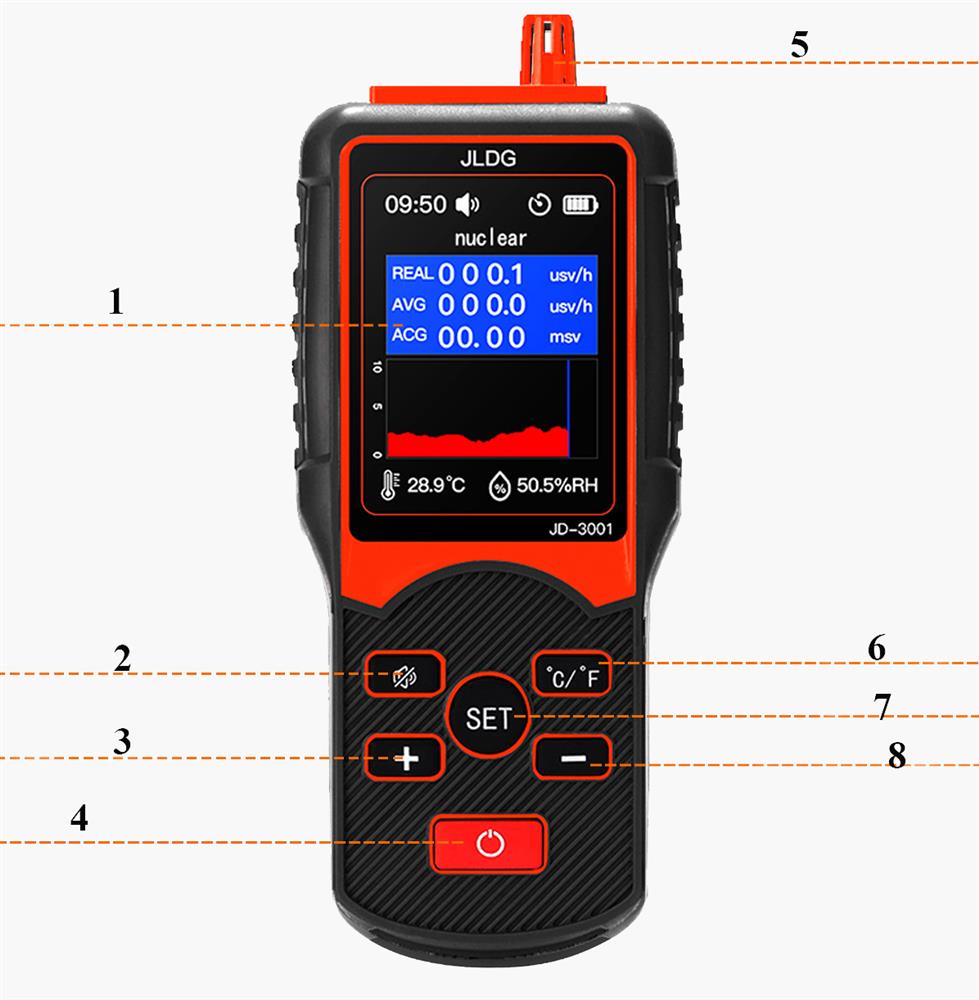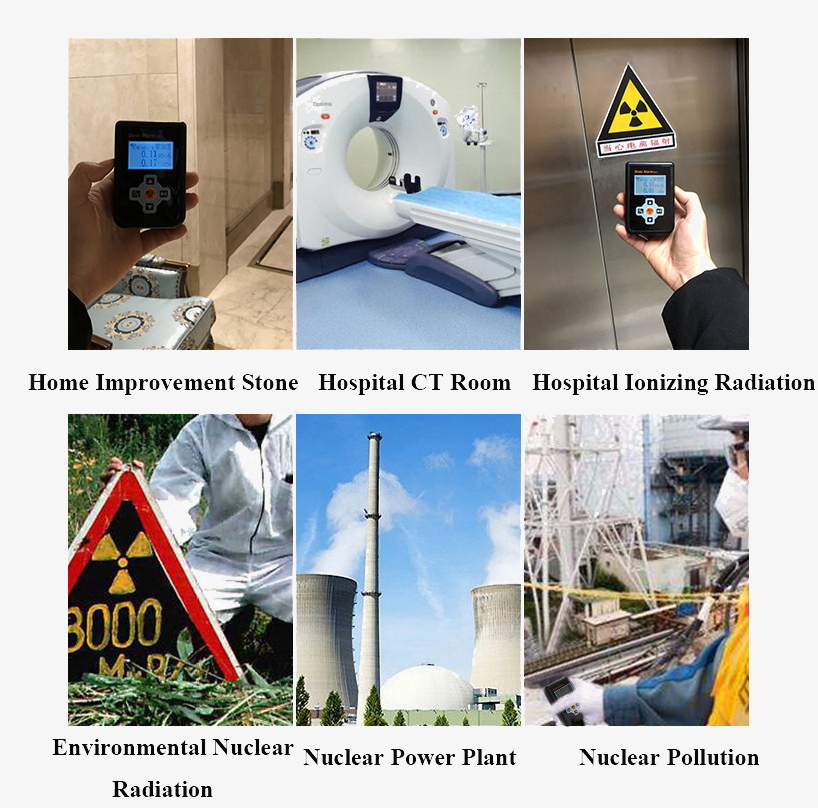High-quality nuclear radiation detector has many functions and supports four languages, home and industrial can be used, operating humidity between 10% RH and 80% RH. The electromagnetic nuclear radiation detector is professional portable Geiger radiation protection and high precision and stability product, widely used in material testing and radiation testing.
Features
- High Sensitivity: Professional counter, core radiation detector with built-in acoustic and visual signals for capturing the extent of radiation.
- Radiation detection: The nuclear radiation detector uses a complex GM tube as the core sensor, with small error and high precision.
- Security monitoring: Developed a nuclear electromagnetic radiation tester with data display, memory and output functions.
- Portable and lightweight: The user interface is small and portable, concise and easy to use, small and portable.
- Wide range of applications: Professional portable geiger radiation protection and high precision and stability of products, widely used in material testing and radiation testing.

Personal radiation detector panel details
- Display screen
- The alarm sound on and off
- Menu up/ function switch
- Switch button
- Temperature and humidity sensor
- Temperature unit conversion
- Menu/Confirm/ Return
- Menu down/ data storage
Applications
SISCO nuclear radiation detectors are widely used in police, fire departments, environmental organizations, metal recycling companies, ports, airports, ceramics factories, research institutes, laboratories, etc.

| Model | SISCO-FS800 |
| Detection Ray | X-rays,γ-ray |
| Accuracy of Measurement | ±15% |
| Relative Inherent Error | <±15% (137 Cs) |
| Dose Rate Response | <±20%(1 μSv/h~99.99 mSv/h) |
| Energy Response | <±30%(48 keV ~ 1.3 MeV) |
| Relative Inherent Error | ≤± 10% (137 CS 1 mSv/h) |
| Sensitivity | 80 CPM/μSv/h |
| Operating Temperature | 0 ℃ ~ +50 ℃ |
| Relative Humidity | 10% RH ~ 80% RH |
| Precision: Electric field | 1 V/m; Magnetic field: 0.01 μT |
| Weight | 0.5 kg |
| Alarm Threshold Value | Electric field: 50 V/m; Magnetic field: 0.3 μT |
Q1: What is a radiation detector?
A1: Radiation Detector is an instrument used to detect or identify high-energy particles, such as those produced by nuclear decay, cosmic radiation, or reactions in a particle accelerator.
Q2: How does a personal radiation detector work?
A2: Personal radiation detectors are very sensitive, designed to detect changes in the gamma radiation level slightly above the background with a fast response time. Most PRDs provide a digital display of the exposure rate and a visual, auditory, or vibratory alarm at preset thresholds.
Q3: What should I look for in a radiation detector?
A3: The selection considerations for radiation detectors include: Type(s) of radiation for which exposure is expected (alpha, beta, gamma, neutron, X-rays, etc.) Desired functions – is the use to measure total radiation dosage over time (as with a dosimeter), or is a more detailed measurement needed?
Tips: What's the difference between a Geiger counter and a personal radiation detector?
Named after Hans Geiger, a German scientist, the Geiger counter is a popular radiation detection equipment. It tells users about the presence of radiation near them. However, it cannot offer more details. A Geiger counter doesn't show the source of radiation, its type, or even the amount of energy it contains. Unlike a Geiger counter, personal radiation detectors are wearable devices that tell you about the source, type, and intensity of radiation. They can also pinpoint the location from where radiation is coming. And thus, help the wearer take immediate action as per the situation.
Thank you for buying industrial test and measurement equipment on SISCO.com, all products sold by SISCO and the partner cover a 12 months warranty, effective from the date of receiving the products.
What is covered?
SISCO is responsible for providing free spare parts, and free technical support to assist the customer to repair the defective products until the problem is solved.
What is not covered?
- Product purchased from anyone other than a SISCO store or a SISCO authorized reseller.
- Expendable parts.
- Routine cleaning or normal cosmetic and mechanical wear.
- Damage from misuse, abuse or neglect.
- Damage from use of parts other than SISCO approved.
- Damage from use outside the product’s usage or storage parameters.
- Damage from use of parts not sold by SISCO.
- Damage from modification or incorporation into other products.
- Damage from repair or replacement of warranted parts by a service provider other than a SISCO authorized service provider.
- Damage caused by the application environment not meeting the product usage requirements and the failure to perform preventive maintenance.

